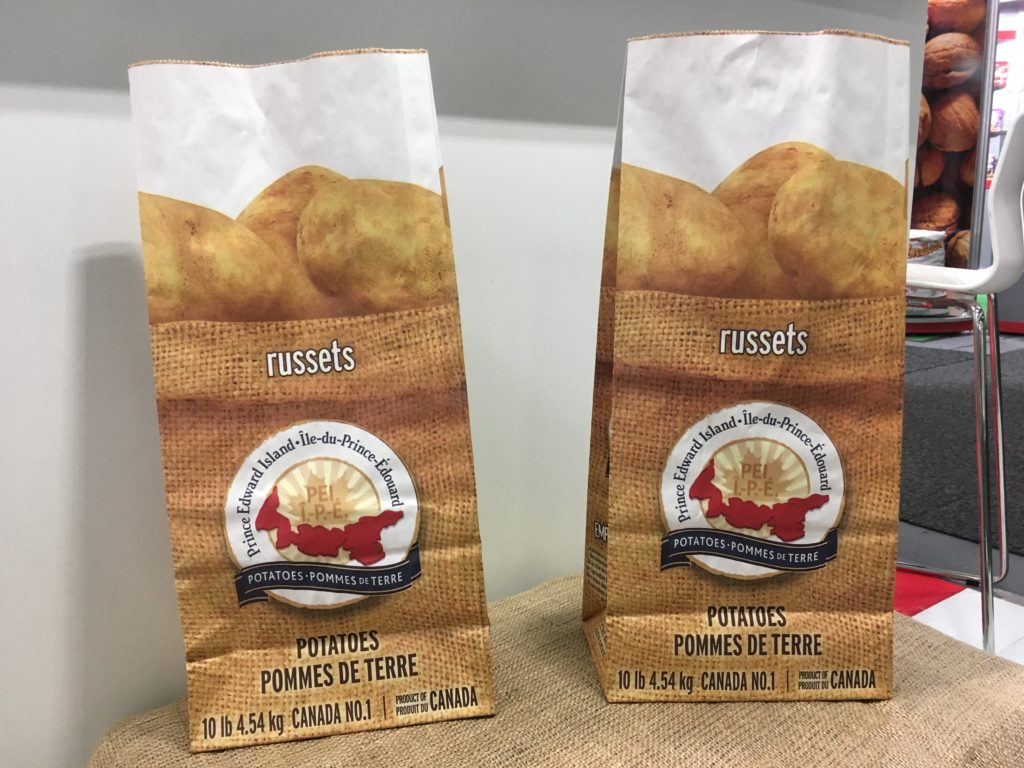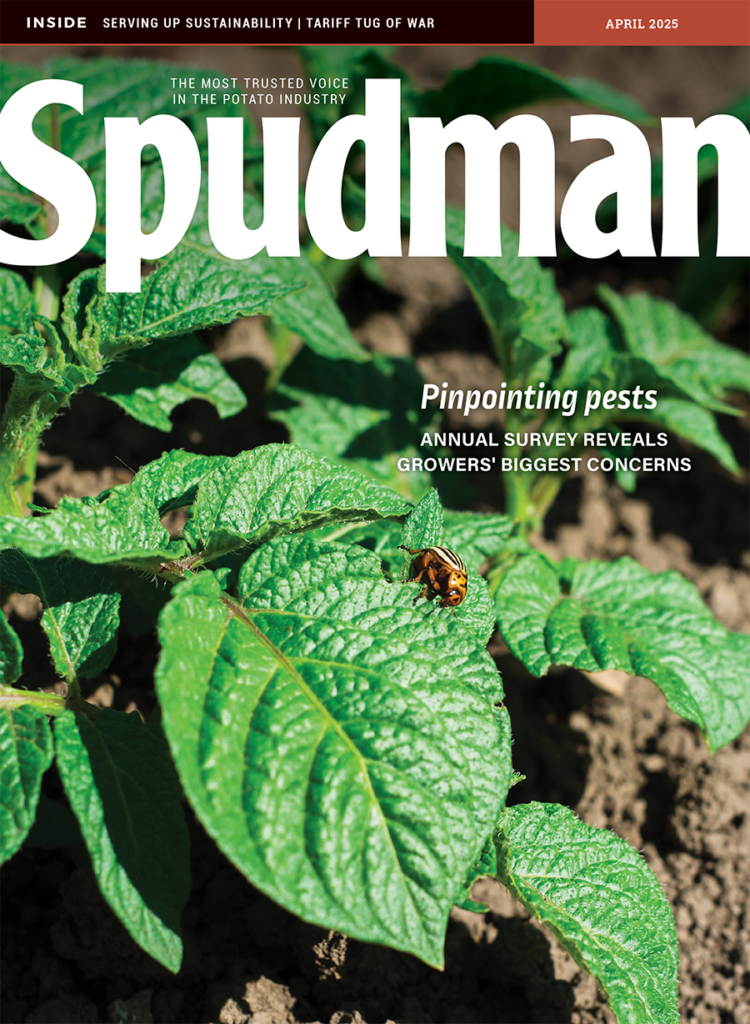
Tiny Prince Edward Island a major producer of potatoes
Prince Edward Island (PEI) off the east coast of Canada is home to just 152,000 people, but accounts for 25 percent of Canada’s potato production.
Famous for its red sandy soil, the island is just 5,660 square kilometers of land, making it slightly larger than Delaware. Producers know that there’s limited opportunities for expansion, which is why the PEI Potato Board makes better, not bigger, its focus.
PEI produces approximately 2.5 billion pounds of potatoes each year, said PEI Potato Board General Manager Greg Donald. Of that, 60 percent is sold to the processing sector, 30 percent is sold to the fresh market and 10 percent is sold as seed. Of the 30 percent sold to the fresh market, approximately 40 percent goes to the U.S.
PEI farmers mostly grow long and round white potatoes, but they also grow yellows and reds. There’s growing demand in the U.S. and Canadian marketplace for yellow and red varieties, though. There’s also growing demand for specialty creamer potatoes and organic potatoes, Donald said.
The U.S. is also a significant market for processed potato products from PEI as well, especially in the northeast.
“There’s a large population in that part of the country, and we’re strategically located in proximity to that market,” Donald said. “We have a history of excellent quality, so we’re able to sell into that market.”
Consumer wants
With regard to fresh potatoes, the bigger trends are around nutrition, taste and convenience, Donald said. Efforts continue around new varieties that better meet these consumer needs. Packers continue to develop new ready-to-use products.
“Consumers want something that is healthy, they want to know the nutrition side of it, and the trends in our market tend to be smaller package sizes, as well,” Donald said. “Consumers are buying smaller portions more often.”
Other drivers of growth for processed potato products include quick-service restaurants like McDonald’s, which added all-day breakfast in recent years, and Tim Horton’s, which offers a potato wedge product.
“Consumption has been trending upwards, too, at least according to some U.S. reports, which is favorable,” Donald said.
Board increases marketing efforts
Part of PEI’s success in terms of maintaining its reputation for producing quality potatoes can be attributed to the work of the marketing board. The board works to promote the brand and maintains relationships with its retail customers, both in the U.S. and Canada. The organization has a presence on social media, and regularly sends out newsletters to its impressive mailing list.
Trade shows mark another point of contact for the board. This year, PEI potatoes could be found as far from home as the Fruit Logistica trade fair in Germany.
“I think that’s what consumers are looking for today,” Donald said. “They want to know where and how their food is grown, and they want to be assured that it is being grown in a certain way, and we’re able to do that.”
If you can’t get bigger, get better
As a Nuffield Scholar, Donald studied potato production and strategies for the potato industry. His scholarship took him to The Netherlands where Dutch farmers face similar land challenges as PEI farmers do.
“Quite frankly, it’s becoming harder to get bigger because the island isn’t getting any bigger, so our focus is on getting better,” he said.
Working with similar constraints, the Dutch have learned how to better meet consumers’ needs, how to develop better yielding and more nutritious varieties, and varieties that need fewer inputs. The board’s efforts in this department led to the launching of an annual conference that focuses entirely on agronomy.
This year, the PEI Potato Board teamed up with the provincial Department of Agriculture to create the two-day conference. The conference covered everything from weed resistance to the status of Alternaria cucumerina, a destructive fungus. It also covered soil compaction, wireworm, crop rotation and alternative irrigation technology. It even covered mental health and social media use.
The conference was a great success, said Donald, adding that it plays an important role in their focus on better, not bigger.
“What we’re marketing is a quality product that is, I would say, second to none,” he said. “And it is grown by people with a long tradition of doing that, who care about the product that they grow, with the highest standards when it comes to growing a safe, nutritious food.
“Really, that is the PEI brand.”
The PEI Potato Board’s history can be traced back as far as 1920 with the formation of the first Potato Growers’ Association. The first marketing board was installed in 1950.
— This is the latest installment of Global Perspectives, a series that looks at potato production from around the world and how international developments could affect U.S. producers. More from Global Perspectives.














